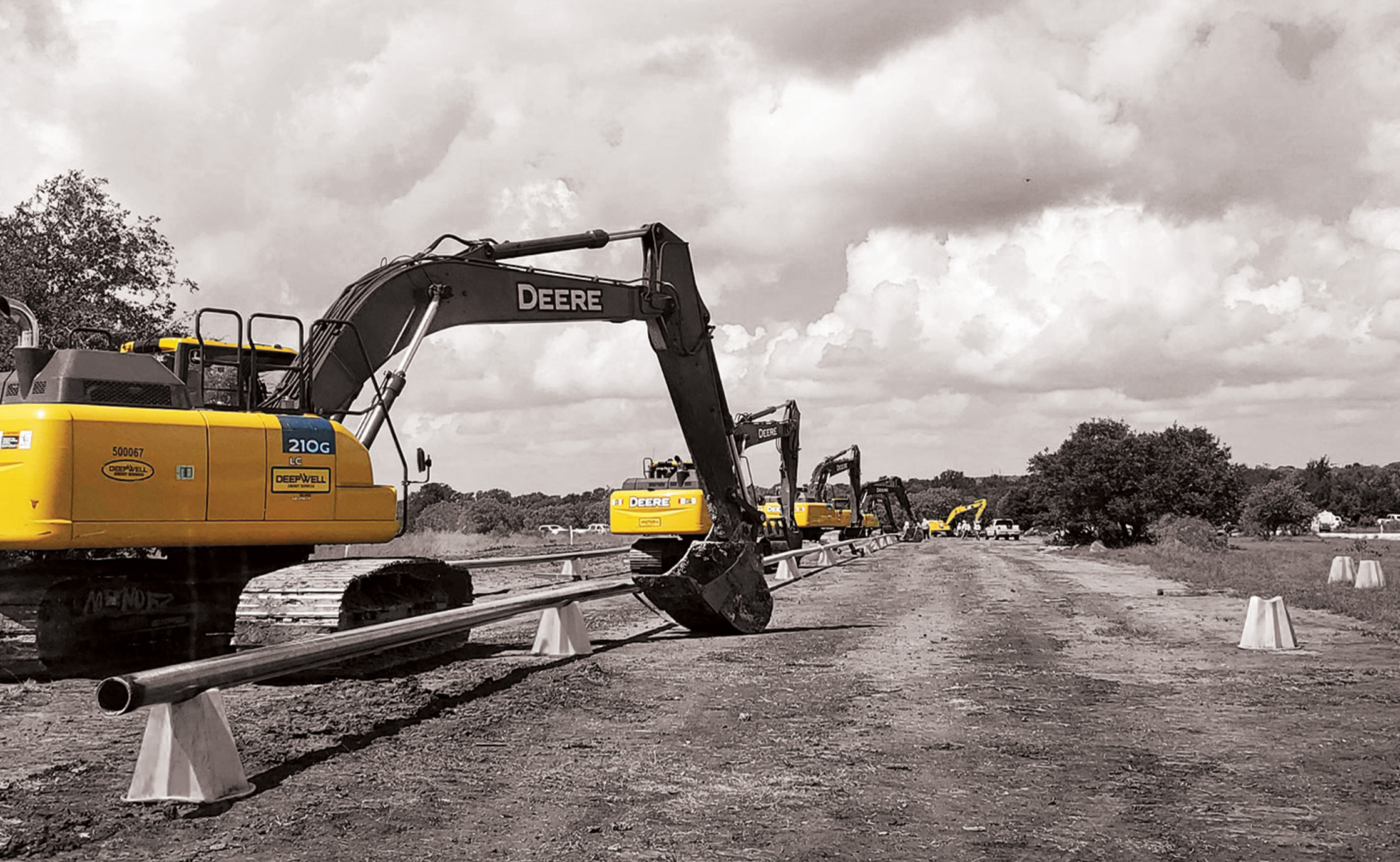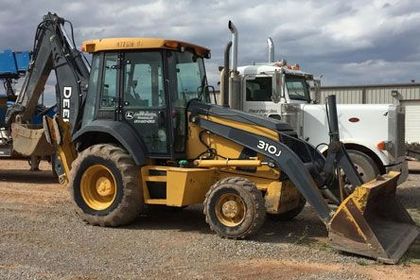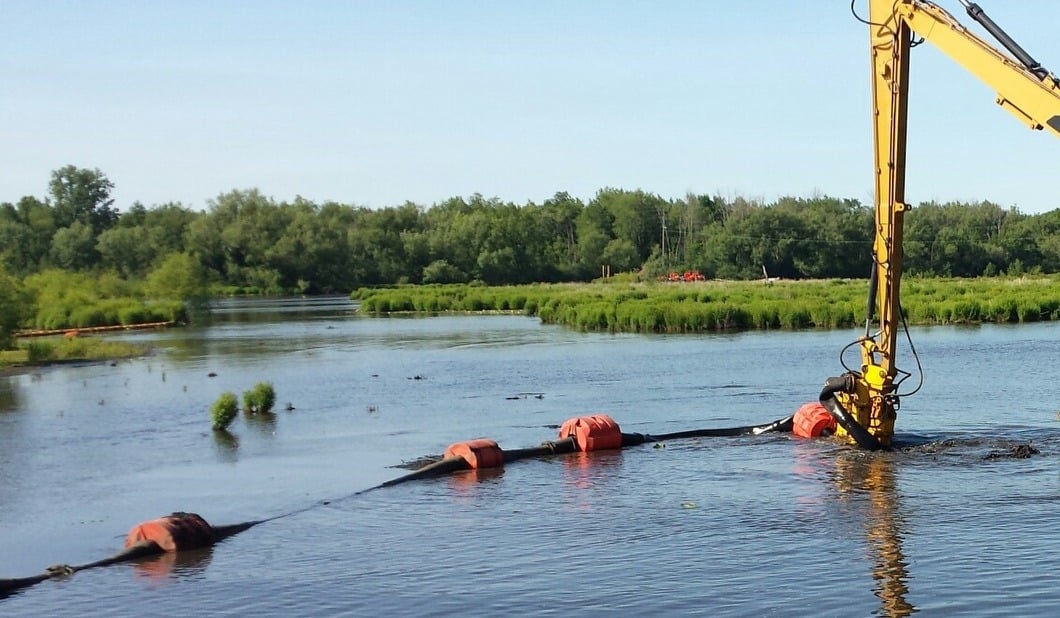Superior Rentals fusion machines: safety practices every technician should know
Wiki Article
A Comprehensive Overview to the Various Sorts Of Oil Field Equipment and Pipeline Equipment Available
The oil and gas market relies heavily on customized tools for reliable extraction and transport. Different sorts of equipment, from drilling rigs to storage containers, play vital roles in this complex procedure. Each tool offers unique functions that add to general functional success. Understanding these elements is essential for anyone associated with the industry. As the sector develops, so too do the modern technologies that support it. What improvements are on the perspective?
Drilling Rigs: The Backbone of Oil Exploration
Drilling rigs work as the vital equipment in the domain name of oil expedition, making it possible for business to accessibility hydrocarbon reserves hidden deep under the Earth's surface area. These rigs can be found in different types, consisting of land rigs, offshore rigs, and mobile devices, each created to run in particular environments. Equipped with advanced innovation, piercing rigs can pass through geological formations with precision, making sure efficient resource removal. The architectural stability and operational abilities of these rigs are crucial, as they should hold up against extreme problems and significant stress. Furthermore, the choice of a drilling gear affects the general task price and timeline, making it an essential factor to consider for oil business seeking to optimize their exploration initiatives and optimize efficiency in their operations.Pumps: Vital for Fluid Motion
In the oil removal process, the role of pumps is considerable, promoting the motion of fluids throughout numerous stages of manufacturing. Pumps are essential for carrying petroleum, water, and other fluids from below ground tanks to the surface area and after that with pipes to refineries. They come in different types, including centrifugal, favorable variation, and completely submersible pumps, each serving certain functions based upon the liquid qualities and operational demands. Centrifugal pumps are commonly utilized for their effectiveness in high-flow applications, while positive variation pumps master managing viscous fluids. The choice of pump influences overall efficiency, operational safety and security, and maintenance prices. Correct option and maintenance of pumps are crucial for enhancing production and minimizing downtime in oil field operations.Shutoffs: Managing Circulation and Pressure

Shutoffs play an important function in managing the circulation and stress of liquids within oil areas and pipelines. Various kinds of shutoffs offer distinctive applications, each created to meet certain functions fundamental for reliable operation - Superior Oilfield Rentals oilfield. Comprehending the qualities and uses these valves is essential for enhancing system efficiency and safety
Sorts of Valves
Essential elements in oil field operations, valves play a vital function in managing the flow and stress of fluids within pipes and tools. Different types of valves are used to fulfill the diverse requirements of oil and gas production. Common types include entrance shutoffs, which supply a straight-line circulation and minimal pressure decrease; globe valves, understood for their strangling abilities; and sphere valves, acknowledged for their fast on/off control. Additionally, check valves stop heartburn, while butterfly shutoffs use a lightweight solution for regulating circulation. Each valve type is created with specific products and arrangements to withstand the harsh conditions typically located in oil fields, guaranteeing integrity and performance in procedures. Recognizing these kinds is crucial for effective system administration.Valve Applications and Functions
While different sorts of valves offer distinctive objectives, their main applications focus on managing circulation and stress within oil and gas systems. Valves such as gate, globe, and ball valves regulate fluid motion, guaranteeing peak efficiency and security. Gateway valves are commonly made use of for on/off control, offering marginal flow resistance. Globe shutoffs, on the various other hand, offer accurate circulation guideline, making them suitable for throttling applications. Sphere valves are preferred for their quick procedure and limited sealing abilities. Additionally, pressure safety valve are essential for stopping system overpressure, securing equipment stability. On the whole, the appropriate selection and application of valves enhance operational performance, making sure the dependable transport of oil and gas via pipes and handling facilities.Compressors: Enhancing Gas Transport
Compressors play a critical function in the effective transport of gas, ensuring that it moves smoothly via pipes over cross countries. These gadgets enhance the pressure of natural gas, allowing it to get over friction and altitude modifications within the pipeline system. Furthermore, compressors facilitate the balancing of supply and demand, fitting changes in usage and production prices. Various kinds of compressors are utilized in the industry, including centrifugal, reciprocating, and rotating screw compressors, each offering distinctive benefits based upon the operational needs. Normal upkeep of these compressors is necessary to optimize effectiveness and decrease downtime, ultimately adding to a reputable gas transportation network. Their crucial feature highlights the importance of compressors in the general oil and gas framework.Storage Tanks: Safe and Effective Fluid Administration
Reliable transport of gas counts on numerous support group, among which is the appropriate monitoring of storage containers. These storage tanks play a crucial role in safely containing liquids, guaranteeing that operational performance is kept while reducing environmental threats. Built from sturdy products, they are created to endure high stress and destructive components. Appropriately sized and strategically situated, tank assist in the smooth flow of gas and other liquids, avoiding traffic jams in supply chains. Regular upkeep and monitoring are important to identify leaks or structural problems, promoting security and conformity with regulatory criteria. Ultimately, the efficient management of tank is crucial for the general stability and dependability of the oil and gas sector's fluid handling systems.
Pipeline Solutions: Framework for Transportation
Pipeline systems act as the foundation of the oil and gas industry, helping with the reliable transportation of hydrocarbons over huge ranges. These systems contain various parts, Full Article including pipes, valves, pumps, and compressors, all diligently designed to ensure smooth flow. The materials utilized in pipeline building and construction, often steel or high-density polyethylene, are chosen for longevity and resistance to corrosion. Pipeline networks can extend across land and water, connecting production sites to refineries and distribution. Furthermore, advanced innovation allows real-time monitoring of flow rates and pressure levels, enhancing operational efficiency. The tactical placement of these pipelines reduces environmental impact while making the most of resource ease of access, thus playing a necessary function in meeting energy demands globally.Safety Equipment: Ensuring Employee and Environmental Protection
The operation of pipeline systems, while essential for power transport, additionally provides considerable safety challenges for employees and the setting. Security tools plays a substantial duty in alleviating these dangers. Personal safety devices (PPE) such as safety helmets, gloves, and non-slip shoes safeguards workers from physical hazards. In addition, gas detection systems check for leaks, making certain that hazardous materials do not posture a risk to workers or the surrounding community. Emergency closure systems are crucial for rapidly stopping operations during a dilemma, avoiding possible catastrophes. Spill control materials, including absorbents and obstacles, are essential for minimizing ecological impact. On the whole, purchasing comprehensive security tools is important for preserving operational stability and shielding both workers and the setting in the oil and gas industry.
Frequently Asked Concerns
How Do I Select the Right Oil Field Equipment for My Job?
Selecting the best oil field equipment involves evaluating project specifications, spending plan restraints, and functional needs. Consider factors such as you can check here equipment integrity, compatibility with existing systems, and the distributor's online reputation to assure peak efficiency and security.What Are the Maintenance Requirements for Oil Field Equipment?
Upkeep needs for oil field equipment include regular evaluations, lubrication, and timely repairs. Operators needs to additionally abide by producer guidelines, display performance metrics, and assurance conformity with safety and security guidelines to improve longevity and performance.
How Can I Make Sure Conformity With Environmental Regulations?
To ensure conformity with ecological regulations, business need to perform regular audits, execute finest techniques, purchase training, maintain proper documents, and remain updated on legislation (Superior Rentals near me). Partnership with ecological firms can additionally boost adherence to lawsWhat Is the Ordinary Lifespan of Pipeline Equipment?
The ordinary lifespan of pipeline equipment normally ranges from 20 to half a century, relying on factors such as worldly top quality, ecological problems, and upkeep methods. Routine assessments can considerably influence durability and operational effectiveness.Just how Do I Securely Deliver Oil Field Equipment to Remote Locations?
Moving oil area devices to remote places requires careful preparation, consisting of path assessment, securing licenses, utilizing click here for info suitable cars, and ensuring safety and security methods are complied with. Proper training and interaction amongst crews are important for effective transport.Report this wiki page